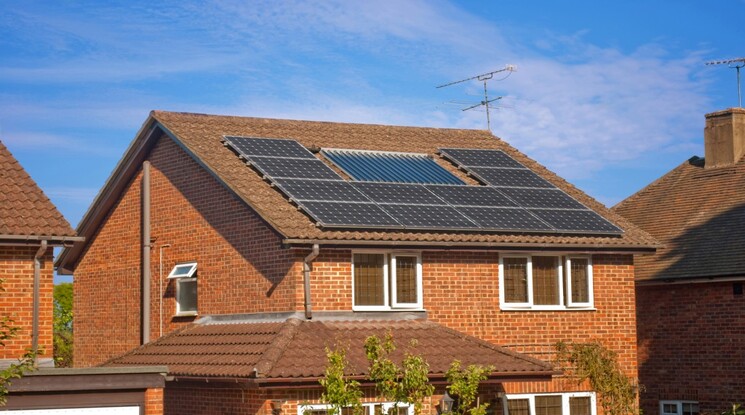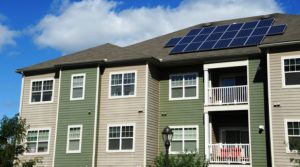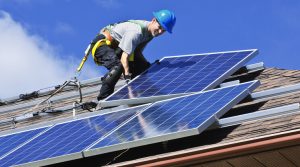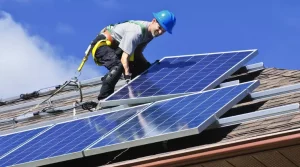As the world continues to grapple with the challenges posed by climate change, many homeowners in the Virginia are seeking ways to reduce their carbon footprint and save money on their energy bills. Solar power is a clean and renewable energy source that has gained popularity in recent years, and one of the most enticing offers for homeowners is the possibility of going solar with zero down payment. In this comprehensive guide, we will explore how to qualify for zero down solar in the USA and take advantage of the numerous benefits it offers.
Why Go Solar?
Before delving into the qualifications for zero down solar in Virginia, it’s essential to understand the benefits of solar energy. Going solar not only reduces your carbon footprint but also provides the following advantages:
Lower Energy Bills: Solar panels generate electricity from sunlight, which can significantly reduce your monthly electricity bills or even eliminate them entirely.
Environmental Benefits: Solar energy is clean and renewable, reducing your dependence on fossil fuels and helping combat climate change.
Increased Home Value: Solar installations can increase the resale value of your home, making it a more attractive option for potential buyers.
Government Incentives: The federal government and many states offer tax credits and incentives to encourage solar adoption, further reducing the cost of installation.
Now that you understand the benefits let’s explore how to qualify for zero down solar.
Check Your Credit Score
One of the critical factors that solar companies consider when determining your eligibility for zero down solar is your credit score. A higher credit score indicates responsible financial behavior and makes you a more attractive candidate for solar financing. If your credit score is above 650, you’re in a good position to qualify for zero down solar. However, if your credit score is lower, you may still be eligible, but you may need to explore other financing options or work on improving your credit before applying.
Evaluate Your Energy Usage
Solar companies in Virginia will assess your energy consumption to determine the size of the solar system you need. To qualify for zero down solar, you should have a history of relatively high energy bills, typically averaging around $75 per month or more. Homes with higher energy consumption are more likely to benefit from solar installations, making them ideal candidates for zero down programs.
Choose the Right Solar Financing Option
To make solar energy more accessible, various financing options are available in the USA. These options include:
Power Purchase Agreements (PPAs)
With a PPA, you agree to purchase the electricity generated by your solar panels at a lower rate than your utility’s retail price. You don’t need to make an upfront payment for the solar system.
Solar Leases
Similar to a PPA, a solar lease allows you to use the solar panels without an upfront payment. Instead, you pay a fixed monthly lease payment.
Solar Loans
Some lenders offer solar loans with low or no down payment options. These loans allow you to own the solar system and receive the benefits of any tax credits and incentives.
Government Programs
Certain government programs and initiatives offer low-interest loans or grants to encourage solar adoption. Explore options available in your state to see if you qualify.
Choose a Reputable Solar Installer
Selecting the right solar installer is crucial to qualifying for zero down solar. Reputable installers often have relationships with financing companies and can guide you through the qualification process. Look for installers with a strong track record, customer reviews, and certifications from organizations like the Solar Energy Industries Association (SEIA).
Consider Local Incentives and Rebates
Many states and local municipalities offer additional incentives and rebates to encourage solar adoption. These incentives can further reduce the cost of your solar installation, making it easier to qualify for zero down solar. Research what incentives are available in your area and take advantage of them.
Understand the Terms and Conditions
Before committing to any zero down solar program, carefully review the terms and conditions of the financing agreement. Pay attention to interest rates, repayment schedules, and any potential escalations in payments over time. Understanding the terms will ensure that you make an informed decision that aligns with your financial goals.
Monitor Your Solar System
Once your solar system is installed, it’s essential to monitor its performance regularly. Ensure that your system is operating efficiently to maximize your energy savings. Most solar companies offer monitoring tools and maintenance services to help you get the most out of your investment.
Conclusion
Going solar with zero down payment is an attractive option for homeowners in the Virginia looking to reduce their energy bills, lower their carbon footprint, and increase the value of their homes. By following the steps outlined in this guide, you can increase your chances of qualifying for zero down solar and start enjoying the benefits of clean, renewable energy. Remember to check your credit score, evaluate your energy usage, choose the right financing option, select a reputable installer, and take advantage of local incentives to make the transition to solar power as smooth as possible. With the right approach, you can harness the power of the sun while saving money and helping the environment.




